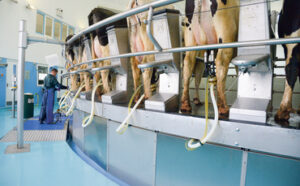
India has criticised Cairns member countries during a WTO meeting on public stockholding of foodgrain for food security purposes in Geneva, stating that members are monopolising time to discuss their submission on domestic support, an official said on Tuesday.
At a dedicated session on public stockholding on November 20, India said it would refrain from commenting as the session had been “ambushed” by some Cairns agriculture-exporting members, the Geneva-based official said.
“India expressed the belief that certain Cairns members were attempting a motion to take away dedicated talks on public stockholding by monopolising time to discuss their submission on domestic support, a topic that arguably should be addressed by the Committee on Agriculture in Special Session, scheduled to convene the next day,” the official added.
The 19-member Cairns group lobbies for agricultural trade liberalisation. It was formed in 1986 in Cairns, Australia.
The members include Argentina, Australia, Brazil, Canada, Chile, Colombia, Costa Rica, Guatemala, Indonesia, Malaysia, New Zealand, Pakistan, Paraguay, and Peru.
On the public stockholding issue, India is pushing the World Trade Organisation (WTO) members to find a permanent solution as the issue is important for the country which has to support its marginal farmers and feed the poor people.
Developed countries that are major agri exporters allege that foodgrain bought at MSP if offloaded in the global market can distort prices so there should be a cap on support measures. It is strongly opposed by India.
In India, the government procures rice at Minimum Support Price (MSP) and provides it to the poor through a public distribution system.
About 80 developing members, including the African Group, G33 Group, and Africa, Caribbean, and Pacific Group, have been assertive, emphasising that this is a high-stakes issue because an outcome on public stockholding must be at the core of any potential agriculture package at MC13.
The 13th ministerial conference (MC13), the highest decision making body of the WTO, is scheduled at Abu Dhabi in February next year.
To break the long-lasting stalemate in agriculture negotiations, the WHO chief has called for a mini-ministerial meeting on November 28.
(Only the headline and picture of this report may have been reworked by the Business Standard staff; the rest of the content is auto-generated from a syndicated feed.)




